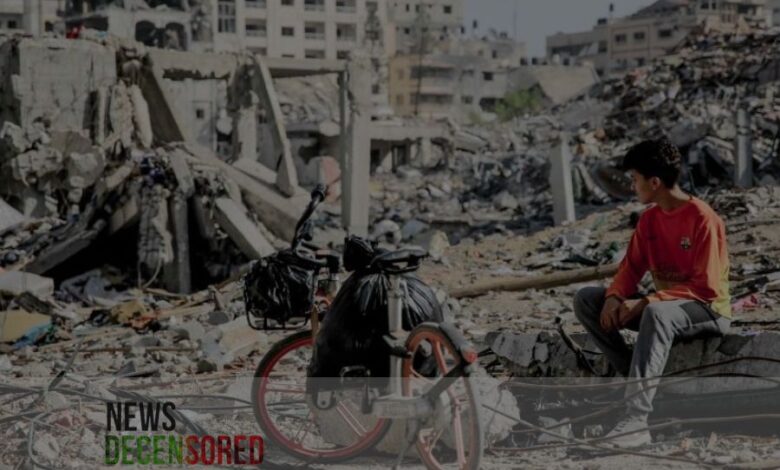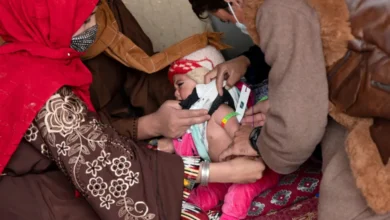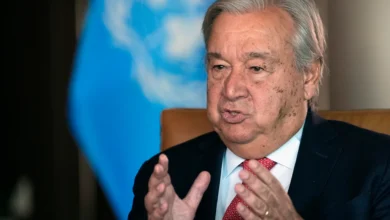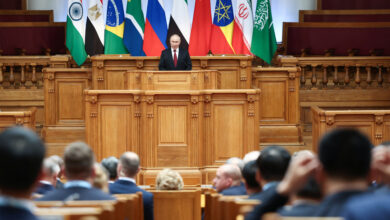How did the Gaza war affect cultural life in Britain?

The divisions became clear during the demonstrations in the British streets, more so in the cultural arena.
With the rise of anti-Semitism and Islamophobia, words and actions have taken on special importance, from sidewalks to stadiums to movie theaters, as the conflict between Israel and Gaza has polarized opinion, and protests have spilled over into the cultural sphere, with some inevitable backlash.
There are prominent examples of cultural figures who have ventured into the political arena and taken a stand on what is happening.
British singer Charlotte Church performed the controversial pro- Palestinian anthem “From the River to the Sea” at a concert, denying that it was “anti-Semitic.”
Comedian Paul Currie also raised the Palestinian flag after his show ended at the Soho Theater in London, and told the Jewish audience who did not stand to salute the flag, “Get out,” before the theater management apologized and said that it would not invite Corrie again.
Suggested stories end
Belfast rap group Nycap recently appeared on Ireland’s Late Show wearing pro-Palestinian clothing, in what may be a violation of rules set by the broadcaster.
It is not surprising that there are those who want to protest on what is happening in Gaza, and in the cultural world there are many left- leaning voices.
Until now, there are still calls to prevent Israel from having a pavilion at the Venice Biennale, during the most famous art exhibition in Europe, and other calls to prevent Israel from participating in the
Eurovision Song Contest.
British star Helen Mirren and British singer Boy George were among the artists who signed an open letter in favor of Israel’s participation in what they called “events that unite people, such as singing
competitions.” They said the competition is a crucial way to “help bridge our cultural divides and unite people of all backgrounds.”
More broadly, “the nuance of these issues has been destroyed,” says theater director Iqbal Khan, associate director at Birmingham Repertory, one of Britain’s most important theatres.
Khan describes polarization in all forms of public life as “deeply troubling,” explaining “the constant need to associate yourself with symbolic flags and partisanships of opinion that do not represent the reality of things.”
“Tik Tok University”
“For those of us who have lived through Israeli and Middle Eastern politics for a very long time, who have worked on behalf of Palestinians and Israelis and who really understand the geopolitics of the region, we look to those who suddenly seem to have been educated at TikTok University to understand the situation, which is,” British actress and writer Tracey-Anne Opperman says. “Of course, it’s too complicated to explain in a 60-second video.”
She added: “We are in shock because of what they are allowing themselves to say and be a part of.”
Every night, more horror is revealed in Gaza, which is going through dark stages, and from which emerge the images of devastation that we see in our homes.
The war broke out after a Hamas attack on Israel on October 7, which resulted in the killing of Israelis and the kidnapping of hostages still being held in Gaza. Since the start of the war, Israeli bombing has killed at least 30,000 Palestinians, most of whom are women and children.
British-Egyptian actor Khaled Abdullah, who plays Dodi Fayed in The Crown, says: “It is very difficult to find a voice that can speak in a way that respects the fact that there is tremendous grief and legacy on
both sides.” But with no political solution, no ceasefire, and “these widespread massacres, what is left for people but to protest and use any cultural platform they have!”
He added, “The region is very charged,” stressing that there is a “moral necessity to take a stand.”
Khan says that while “spirited debate” is useful, people “need to speak up without compromising the safety of others or inciting violence.”
Khan believes there is “tremendous cultural support for those who oppose anti-Semitism.”
He continued: “I was horrified by what happened on October 7, but the continued response and its scale, I would describe as genocide.”




